The BEST episodes of BBC Documentaries season 2011
Every episode of BBC Documentaries season 2011, ranked from best to worst by thousands of votes from fans of the show. The best episodes of BBC Documentaries season 2011!
Documentaries produced by or for the BBC.
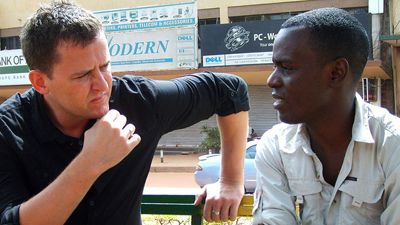
#1 - The World's Worst Place to Be Gay?
Season 2011 - Episode 46 - Aired 2/14/2011
Scott Mills travels to Uganda where the death penalty could soon be introduced for being gay. The gay Radio 1 DJ finds out what it's like to live in a society which persecutes people like him and meets those who are leading the hate campaign.
Watch Now:Amazon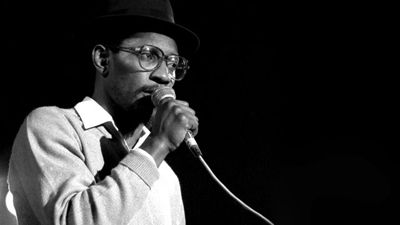
#2 - Reggae Britannia
Season 2011 - Episode 45 - Aired 2/11/2011
The acclaimed BBC4 Britannia series moves into the world of British reggae. Showing how it came from Jamaica in the 1960s to influence, over the next twenty years, both British music and society, the programme includes major artists and performances from that era, including Big Youth, Max Romeo, Linton Kwesi Johnson, Jerry Dammers and the Specials, the Police, UB40, Dennis Bovell, lovers rock performers Carroll Thompson and Janet Kay, bands like Aswad and Steel Pulse and reggae admirers such as Boy George and Paul Weller. The programme celebrates the impact of reggae, the changes it brought about and its lasting musical legacy.
Watch Now:Amazon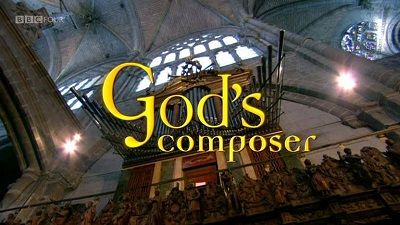
#3 - God's Composer
Season 2011 - Episode 278 - Aired 12/2/2011
Simon Russell Beale continues his Sacred Music journey in this special celebration marking the 400th anniversary of the death of the great Spanish Renaissance composer Tomas Luis de Victoria. In exploring the extraordinary world of this intensely spiritual man - musician, priest and mystic - Simon's travels take him to some of Spain's most stunning locations, from the ancient fortified city of Avila, with its medieval walls and glorious cathedral, to the magnificent El Escorial palace, where Philip II would listen to Victoria's music though a small door leading off his bedroom directly to the high altar of the Basilica. In Madrid, Simon explores the dramatic religious paintings of Victoria's contemporary El Greco in the Prado Museum and visits the convent of Las Descalzas Reales, named after the barefoot nuns who worshipped there and where Victoria spent the final three decades of his life as choirmaster and organist. The music is specially performed by Harry Christophers and The Sixteen in the church of San Antonio de los Alemanes, a hidden baroque jewel built in Victoria's lifetime in the heart of Madrid.
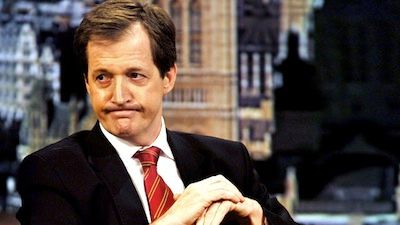
#4 - My Resignation
Season 2011 - Episode 171 - Aired 8/3/2011
Through personal testimony, this programme follows the process of resigning: from the initial crisis to taking the decision to resign and handling the timing, to the costs, consequences and legacy of the resignation. It shows that the honourable resignation is not dead. In all walks of life people grappling with moral issues still take that decision to resign. Consultant anaesthetist Stephen Bolsin felt he could only go public after he had resigned and left the country. Former home secretary Jacqui Smith was determined to do the honourable thing and resign immediately over her expenses, but she was thwarted by a prime minister with any eye on political timing. The honourable resignations of Lord Carrington and Richard Luce were put back on track by a hostile parliament and press. The programme charts how resignation can act as a social barometer - affairs that were once a fast route to leaving are no longer a career fullstop. Max Mosley talks frankly about how determined he was not to bow to pressure to go after revelations over his extra-marital sex. Interviewees talk about their experiences and what they have learned. Alastair Campbell describes almost 'lamping' demonstrators outside his house. Greg Dyke can't sleep after his resignation 'deal' with the BBC governors goes wrong. Daily Star journalist Richard Peppiatt is plunged into depression after his plan to publish his resignation letter in the Guardian falls apart. My Resignation shows that however society changes, resigning remains a personal and often traumatic journey.
Watch Now:Amazon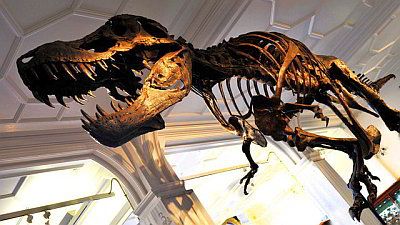
#5 - How to Build a Dinosaur
Season 2011 - Episode 163 - Aired 9/21/2011
Dinosaurs died out 65 million years ago and we have hardly ever found a complete skeleton. So how do we turn a pile of broken bones into a dinosaur exhibit? Dr Alice Roberts finds out how the experts put skeletons back together, with muscles, accurate postures, and even - in some cases - the correct skin colour.
Watch Now:Amazon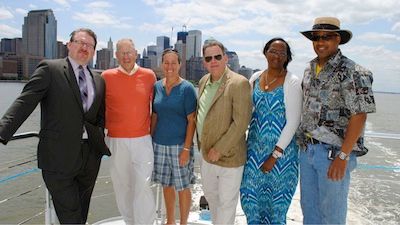
#6 - The Twins of the Twin Towers
Season 2011 - Episode 155 - Aired 9/6/2011
To commemorate the 10th anniversary of 9/11, The Twins of the Twin Towers tells the previously untold story of the twins who lost their 'other half' on the day of the terrorist attacks. It features the accounts of some of the 46 twins including Zachary Fletcher, a New York City Fire Fighter who lost his fellow fire fighter and twin brother, Andre in the south tower; Gregory Hoffman, who was on the phone to his twin, Stephen, as the second plane hit and former NYPD undercover cop, Lisa DeRienzo who lost her brother, Michael. As a broker, Michael believed he was the one with the safe job. These and other compelling testimonies make for a profound and powerful tale, which strikes at the heart of what it is to be, not only a twin, but also a human being and reminds us why, as the tenth anniversary approaches, the world can never forget the events of September 11 2001.
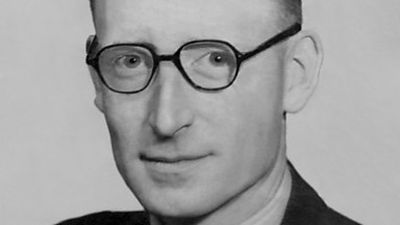
#7 - Code-Breakers: Bletchley Park's Lost Heroes
Season 2011 - Episode 184 - Aired 10/25/2011
Documentary that reveals the secret story behind one of the greatest intellectual feats of World War II, a feat that gave birth to the digital age. In 1943, a 24-year-old maths student and a GPO engineer combined to hack into Hitler's personal super-code machine - not Enigma but an even tougher system, which he called his 'secrets writer'. Their break turned the Battle of Kursk, powered the D-day landings and orchestrated the end of the conflict in Europe. But it was also to be used during the Cold War - which meant both men's achievements were hushed up and never officially recognised

#8 - The Secret Life of Ice
Season 2011 - Episode 185 - Aired 10/27/2011
Ice is one of the strangest, most beguiling and mesmerising substances in the world. Full of contradictions, it is transparent yet it can glow with colour, it is powerful enough to shatter rock but it can melt in the blink of an eye. It takes many shapes, from the fleeting beauty of a snowflake to the multi-million tonne vastness of a glacier and the eeriness of the ice fountains of far-flung moons. Science writer Dr Gabrielle Walker has been obsessed with ice ever since she first set foot on Arctic sea ice. In this programme she searches out some of the secrets hidden deep within the ice crystal to try to discover how something so ephemeral has the power to sculpt landscapes, to preserve our past and inform our future
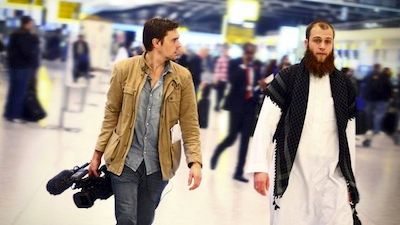
#9 - My Brother the Islamist
Season 2011 - Episode 74 - Aired 4/4/2011
Tree surgeon-turned-filmmaker Robb Leech is an ordinary white middle-class boy from the Dorset seaside town of Weymouth. So too is his stepbrother Rich, but a little over a year ago Rich became a radical Islamist who now goes by the name of Salahuddin. He associates with jihadist fundamentalists and believes the UK should be ruled by Sharia law. In a film that took over twelve months to shoot, Robb sets out to reconnect with his extremist stepbrother and find clues to what led Rich to become Salahuddin. It charts the brothers' relationship and Robb's attempt to understand why the person he'd once looked up to as a teenage role model could so strongly reject all that his family and the Western world believe in. As Robb spends time with Salahuddin, he witnesses a very particular phenomenon - the embrace of radical Islamism by young men, many of them white. Robb first heard of Rich's conversion in a national newspaper in the summer of 2009. The article said Rich had converted under Anjem Choudary, leader of the radical Muslim group Islam4UK (later banned under Britain's anti-terror laws). Robb was horrified by the things his stepbrother was telling him - that under Sharia law, women should be stoned to death for committing adultery, that he was prepared to die for Islam and that as a non-believer, Robb was going to hell. Just the previous summer the two brothers had shared a room on holiday in Cyprus and been practically inseparable. Robb began filming what was happening to Rich to try to understand why it had happened and what the world was like that Rich had chosen.
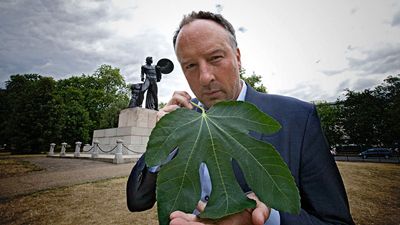
#10 - Fig Leaf: The Biggest Cover-Up in History
Season 2011 - Episode 43 - Aired 2/10/2011
Writer and broadcaster Stephen Smith uncovers the secret history of the humble fig leaf, opening a window onto 2,000 years of Western art and ethics. He tells how the work of Michelangelo, known to his contemporaries as 'the maker of pork things', fuelled the infamous 'fig leaf campaign', the greatest cover-up in art history; how Bernini turned censorship into a new form of erotica by replacing the fig leaf with the slipping gauze; and how the ingenious machinations of Rodin brought nudity back to the public eye. In telling this story, Smith turns many of our deepest prejudices upside down, showing how the Victorians had a far more sophisticated and mature attitude to sexuality than we do today. He ends with an impassioned plea for the widespread return of the fig leaf to redeem modern art from cheap sensation and innuendo.
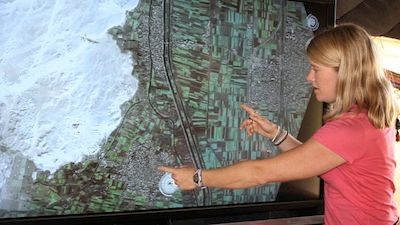
#11 - Egypt's Lost Cities
Season 2011 - Episode 97 - Aired 5/30/2011
It is possible that only one percent of the wonders of Ancient Egypt have been discovered, but now, thanks to a pioneering approach to archaeology, that is about to change. Dr Sarah Parcak uses satellites to probe beneath the sands, where she has found cities, temples and pyramids. Now, with Dallas Campbell and Liz Bonnin, she heads to Egypt to discover if these magnificent buildings are really there.
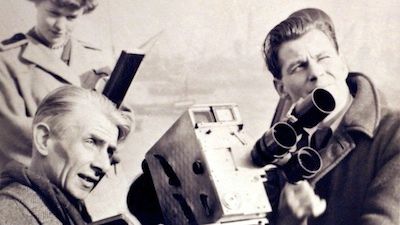
#12 - Britain Through A Lens: The Documentary Film Mob
Season 2011 - Episode 135 - Aired 7/19/2011
The unlikely story of how, between 1929 and 1945, a group of tweed-wearing radicals and pin-striped bureaucrats created the most influential movement in the history of British film. They were the British Documentary Movement and they gave Britons a taste for watching films about real life. They were an odd bunch, as one wit among them later admitted. "A documentary director must be a gentleman... and a socialist." They were inspired by a big idea - that films about real life would change the world. That, if people of all backgrounds saw each other on screen - as they really were - they would get to know and respect each other more. As John Grierson, the former street preacher who founded the Movement said: "Documentary outlines the patterns of interdependence". The Documentary Film Mob assembles a collection of captivating film portraits of Britain, during the economic crisis of the 1930s and the Second World War. Featuring classic documentaries about slums and coal mines, about potters and posties, about the bombers and the Blitz, the programme reveals the fascinating story of what was also going on behind the camera. Of how the documentary was born and became part of British culture.
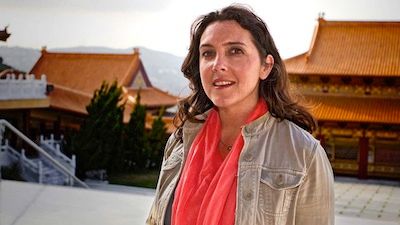
#13 - Seven Wonders of the Buddhist World
Season 2011 - Episode 143 - Aired 8/24/2011
In this fascinating documentary, historian Bettany Hughes travels to the seven wonders of the Buddhist world and offers a unique insight into one of the most ancient belief systems still practised today. Buddhism began 2,500 years ago when one man had an amazing internal revelation underneath a peepul tree in India. Today it is practised by over 350 million people worldwide, with numbers continuing to grow year on year. In an attempt to gain a better understanding of the different beliefs and practices that form the core of the Buddhist philosophy and investigate how Buddhism started and where it travelled to, Hughes visits some of the most spectacular monuments built by Buddhists across the globe. Her journey begins at the Mahabodhi Temple in India, where Buddhism was born; here Hughes examines the foundations of the belief system - the three jewels. At Nepal's Boudhanath Stupa, she looks deeper into the concept of dharma - the teaching of Buddha, and at the Temple of the Tooth in Sri Lanka, Bettany explores karma, the idea that our intentional acts will be mirrored in the future. At Wat Pho Temple in Thailand, Hughes explores samsara, the endless cycle of birth and death that Buddhists seek to end by achieving enlightenment, before travelling to Angkor Wat in Cambodia to learn more about the practice of meditation. In Hong Kong, Hughes visits the Giant Buddha and looks more closely at Zen, before arriving at the final wonder, the Hsi Lai temple in Los Angeles, to discover more about the ultimate goal for all Buddhists - nirvana.
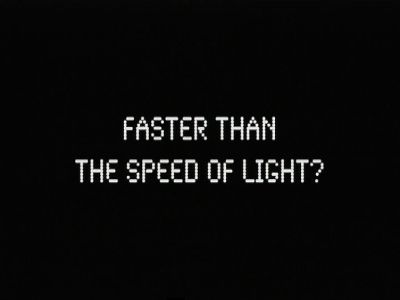
#14 - Faster Than the Speed of Light?
Season 2011 - Episode 183 - Aired 10/19/2011
In September 2011, an international group of scientists has made an astonishing claim - they have detected particles that seemed to travel faster than the speed of light. It was a claim that contradicted more than a hundred years of scientific orthodoxy. Suddenly there was talk of all kinds of bizarre concepts, from time travel to parallel universes. So what is going on? Has Einstein's famous theory of relativity finally met its match? Will we one day be able to travel into the past or even into another universe? In this film, Professor Marcus du Sautoy explores one of the most dramatic scientific announcements for a generation. In clear, simple language he tells the story of the science we thought we knew, how it is being challenged, and why it matters.
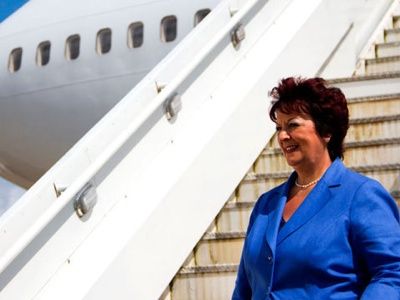
#15 - Come Fly with Me (The Story of Pan Am)
Season 2011 - Episode 208 - Aired 11/12/2011
Documentary telling the story of how Pan American World Airways kickstarted the Jet Age and shrank the globe. Real-life 'Pan Am girls' recall a high-life of luxury and glamour; rubbing shoulders with celebrity passengers, international romances and having to wear the now infamous girdle. Stars of the Jet Age such as Robert Vaughn and Mary Quant remember the food, fashion and girls that made them regular Pan Am passengers. Pan Am's success was largely due to its visionary founder Juan Trippe, who transformed a small mail carrier into a global airline, pioneered flights for the masses and helped create the Boeing 747 jumbo jet. Honor Blackman narrates the story of how Pan Am conquered the skies and left a legacy of affordable travel and a much smaller world.
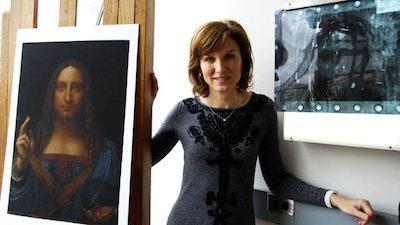
#16 - Da Vinci: The Lost Treasure
Season 2011 - Episode 190 - Aired 10/30/2011
Leonardo da Vinci is considered by many to be one of the greatest artists who ever lived. Yet his reputation rests on only a handful of pictures - including the world's most famous painting, the Mona Lisa. As the National Gallery in London prepares to open its doors on a remarkable exhibition of Leonardo's work, Fiona Bruce travels to Florence, Milan, Paris and Warsaw to uncover the story of this enigmatic genius - and to New York, where she is given an exclusive preview of a sensational discovery: a new Leonardo.
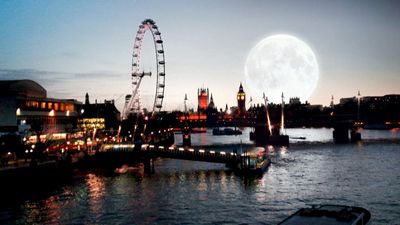
#17 - Do We Really Need the Moon?
Season 2011 - Episode 30 - Aired 2/1/2011
The Moon is such a familiar presence in the sky that most of us take it for granted. But what if it wasn't where it is now? How would that affect life on Earth? Space scientist and lunar fanatic Dr Maggie Aderin-Pocock explores our intimate relationship with the Moon. Besides orchestrating the tides, the moon dictates the length of a day, the rhythm of the seasons and the very stability of our planet. Yet the Moon is always on the move. In the past it was closer to Earth and in the future it'll be farther away. That it is now perfectly placed to sustain life is pure luck, a cosmic coincidence. Using computer graphics to summon up great tides and set the Earth spinning on its side, Maggie Aderin-Pocock implores us to look at the Moon afresh: to see it not as an inert rock, but as a key player in the story of our planet, past, present and future.
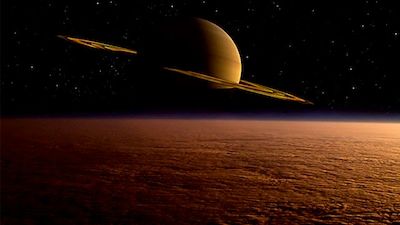
#18 - Destination Titan
Season 2011 - Episode 76 - Aired 4/10/2011
It's a voyage of exploration like no other - to Titan, Saturn's largest moon and thought to resemble our own early Earth. For a small team of British scientists this would be the culmination of a lifetime's endeavour - the flight alone, some 2 billion miles, would take a full seven years. This is the story of the space probe they built, the sacrifices they made and their hopes for the landing. Would their ambitions survive the descent into the unknown on Titan's surface?
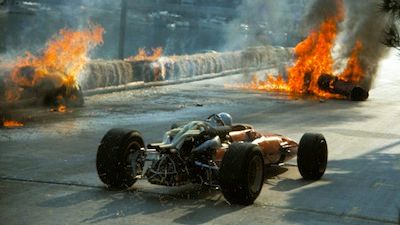
#19 - Grand Prix: The Killer Years
Season 2011 - Episode 71 - Aired 3/27/2011
In the 60s and early 70s it was common for Grand Prix drivers to be killed while racing, often televised for millions to see. Mechanical failure, lethal track design, fire and incompetence snuffed out dozens of young drivers. They had become almost expendable as eager young wannabes queued up at the top teams' gates waiting to take their place. This is the story of when Grand Prix was out of control. Featuring many famous drivers including three times world champion Sir Jackie Stewart OBE, twice world champion Emerson Fittipaldi and John Surtees OBE, this exciting but shocking film explores how Grand Prix drivers grew sick of their closest friends being killed and finally took control of their destiny. After much waste of life, the prestigious Belgian and German Grands Prix would be boycotted, with drivers insisting that safety be put first. But it would be a long and painful time before anything would change, and a lot of talented young men would be cut down in their prime. This is their story.
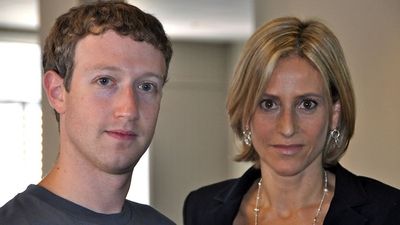
#20 - Mark Zuckerberg: Inside Facebook
Season 2011 - Episode 216 - Aired 12/4/2011
In just seven years, Mark Zuckerberg has gone from his Harvard college dorm to running a business with 800 million users, and a possible value of $100 billion. His idea to 'make the world more open and connected' has sparked a revolution in communication, and now looks set to have a huge impact on business too. Emily Maitlis reports on life inside Facebook. Featuring a rare interview with Zuckerberg himself, the film tells the story of Facebook's creation, looks at the accuracy of The Social Network movie, and examines Facebook's plans to use the personal information it has collected to power a new kind of online advertising.
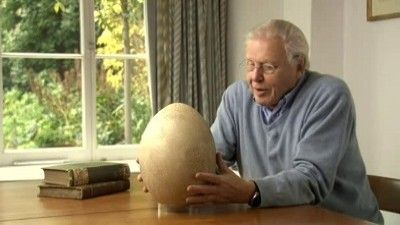
#21 - Attenborough and the Giant Egg
Season 2011 - Episode 67 - Aired 3/2/2011
David Attenborough returns to the island of Madagascar on a very personal quest. In 1960 he visited the island to film one of his first ever wildlife series, Zoo Quest. Whilst he was there, he acquired a giant egg. It was the egg of an extinct bird known as the 'elephant bird' - the largest bird that ever lived. It has been one of his most treasured possessions ever since. Fifty years older, he now returns to the island to find out more about this amazing creature and to see how the island has changed. Could the elephant bird's fate provide lessons that may help protect Madagascar's remaining wildlife? Using Zoo Quest archive and specially shot location footage, this film follows David as he revisits scenes from his youth and meets people at the front line of wildlife protection. On his return, scientists at Oxford University are able to reveal for the first time how old David's egg actually is - and what that might tell us about the legendary elephant bird.
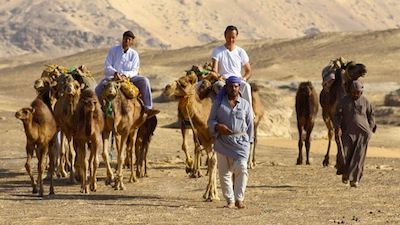
#22 - Secrets of the Arabian Nights
Season 2011 - Episode 84 - Aired 4/21/2011
The Arabian Nights first arrived in the West 300 years ago, and ever since then its stories have entranced generations of children and seduced adults with a vision of an exotic, magical Middle East. Actor and director Richard E Grant wants to know why the book he loved as a child still has such a hold on our imagination. He travels to Paris to discover how the stories of Sinbad, Ali Baba and Aladdin were first brought to the West by the pioneering Arabist Antoine Galland in the early 18th century. The Nights quickly became an overnight literary sensation and were quickly translated into all the major European languages. Richard then travels to Cairo to explore the medieval Islamic world which first created them. He quickly finds that some of the stories can still be deeply controversial, because of their sexually-explicit content. Richard meets the Egyptian writer and publisher Gamal al Ghitani, who received death threats when he published a new edition of the book. He also finds that the ribald and riotous stories in the Nights represent a very different view of Islam than fundamentalism. Can the Nights still enrich and change the West's distorted image of the Arab world?
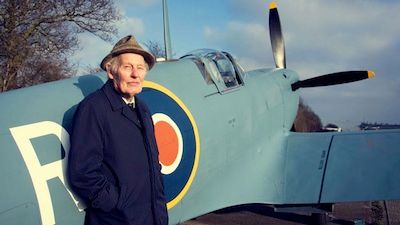
#23 - Operation Crossbow
Season 2011 - Episode 94 - Aired 5/15/2011
The heroic tales of World War II are legendary, but Operation Crossbow is a little known story that deserves to join the hall of fame: how the Allies used 3D photos to thwart the Nazis' weapons of mass destruction before they could obliterate Britain. This film brings together the heroic Spitfire pilots who took the photographs and the brilliant minds of RAF Medmenham that made sense of the jigsaw of clues hidden in the photos. Hitler was pumping a fortune into his new-fangled V weapons in the hope they could win him the war. But Medmenham had a secret weapon of its own, a simple stereoscope which brought to life every contour of the enemy landscape in perfect 3D. The devil was truly in the detail and, together with extraordinary personal testimonies, the film uses modern computer graphics on the original wartime photographs to show just how the photo interpreters were able to uncover Hitler's nastiest secrets.
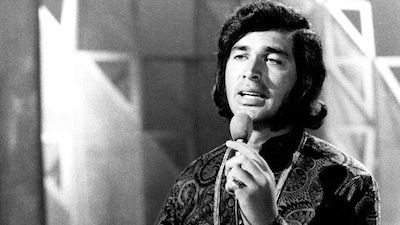
#24 - The Joy of Easy Listening
Season 2011 - Episode 100 - Aired 5/27/2011
In-depth documentary investigation into the story of a popular music that is often said to be made to be heard, but not listened to. The film looks at easy listening's architects and practitioners, its dangers and delights, and the mark it has left on modern life. From its emergence in the 50s to its heyday in the 60s, through its survival in the 70s and 80s and its revival in the 90s and beyond, the film traces the hidden history of a music that has reflected society every bit as much as pop and rock - just in a more relaxed way. Invented at the dawn of rock 'n' roll, easy listening has shadowed pop music and the emerging teenage market since the mid-50s. It is a genre that equally soundtracks our modern age, but perhaps for a rather more 'mature' generation and therefore with its own distinct purpose and aesthetic. Contributors include Richard Carpenter, Herb Alpert, Richard Clayderman, Engelbert Humperdinck, Jimmy Webb, Mike Flowers, James Last and others.
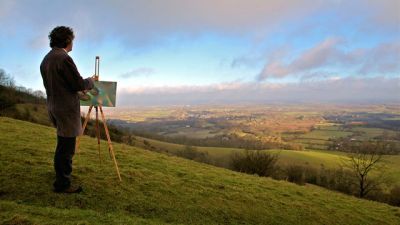
#25 - This Green and Pleasant Land: The Story of British Landscape Painting
Season 2011 - Episode 108 - Aired 5/17/2011
400 years of art history in 90 minutes? This film takes an eclectic group of people from all walks of life, including artists, critics and academics, out into the countryside to take a look at how we have depicted our landscape in art, discovering how the genre carried British painting to its highest eminence and won a place in the nation's heart.